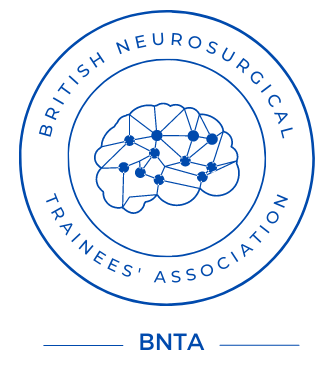BNTA Awards
The
BNTA Extended Travel Award - FOUR awards of £2000 each
The
BNTA Short Travel Award - FOUR awards of £1000 each
Travel dates that are applicable for applying for the award this year include:
Take place no earlier than 1 August 2025 (i.e., up to 6 months before the deadline)
Take place no later than 1 August 2026 (i.e., up to 6 months after the deadline)
Application Portal
The applications for the BNTA Travel Awards are now live. Please attach the two documents listed above and submit by 5pm on the Monday 2nd February 2026. Any submissions after this date will not be considered.
BNTA Travel Awards - Previous Winners
Testimonies
Euan Strachan - International Academy of Neurosurgical Anatomy (IANA) Research Fellowship looking at microvascular anatomy of the fornix. Tours, France
I recently completed a 6-month neuroanatomy research fellowship in Tours, France with the support of a BNTA Extended Travel Award. This generous bursary was vital in my being able to take time out of my training and to complete my research project whilst without a salary.
Having this financial support enabled me to cover the necessary expenses for living away and to travel in order to see my family. My concerns regarding this period apart and the financial strain this may have caused was quickly alleviated because of this kind contribution from the BNTA and industry. I completed my research investigating the microvascular anatomy of the human fornix and will be proudly presenting this at the SBNS Autumn meeting this year in Bristol. Our research was able to demonstrate novel and important anatomical characteristics of the fornix that will lead to safer neurosurgical intervention and improved patient outcomes. Such knowledge is especially vital in healthcare settings where technological resources may be limited yet overcome by improved anatomical knowledge. I cannot thank the BNTA enough for supporting me in this highly worthwhile experience.
Aimee Goel -
I am a Neurosurgery registrar in Birmingham. Supported by the BNTA Codman Travel Fellowship, I was able to spend 4 weeks at the Hospital for Sick Children in Toronto, in October 2024. This was an extremely valuable learning experience for me, further solidifying my plans to specialise in Paediatric Neurosurgery. Comparing the challenges and organisational structure of Canadian healthcare system with the one I am familiar with in the UK, was a valuable
learning experience. I observed surgery that I have not had the opportunity to be involved with at my centre in the UK -- for example, Deep Brain Stimulation for dystonia, laser interstitial thermal therapy for hypothalamic hamartomas, selective dorsal rhizotomy for spasticity. I attended daily ward rounds, highly specialist Paediatric Multidisciplinary Team (MDT) meetings such as Paediatric Vascular, Epilepsy and mucopolysaccharoidosis MDTs, as well as evening research seminars. My interactions with patients in outpatient clinics allowed me to appreciate the socio-geographic limitations on healthcare provision in Canada, for example the need to take flights across the province to simply attend an outpatient appointment. I visited the SickKids Brain Tumour research centre and learned about the research into blood-brain barrier bypassing techniques for tumour drug delivery. Inspired by this, I co-authored a book chapter in Focused Ultrasound in Paediatric Neurosurgery along with my supervisor, Prof James Rutka. Aside from the clinical experience, I was able to travel to national parks in Killarney and Algonquin, along with colleagues and faculty at SickKids Hospital, which was one of the highlights of my trip. Finally, this Observership gave me the opportunity to develop contacts which will be invaluable in my Paediatric Neurosurgery fellowship applications in future.
Alvaro Villabona -
What motivated you to apply for this global neurosurgery placement?
I applied for this placement through the SBNS Global Neurosurgery programme because I wanted to see how neurosurgery is practised in a different part of the world, especially in a setting with different challenges and limited resources. It felt like a great opportunity to learn from a different healthcare system, broaden my clinical experience, and get a fresh perspective on how things are done elsewhere.
How did going on this placement enhance your surgical skills, clinical skills, and overall career development?
This visit to a neurosurgical centre in Colombia significantly enhanced my surgical skills, particularly through high-volume spinal fixation cases and exposure to techniques uncommon in the UK, such as the left-sided ACDF and Cloward approach to the anterior cervical spine. Clinically, the experience helped me become more adaptable and it enriched my career by deepening my appreciation of healthcare delivery models and fostering international collaboration.
Favourite unique experience during your visit that would not have occurred in UK.
One experience that really stood out was managing penetrating trauma cases — including cranial gunshot wounds and spinal knife injuries — which are incredibly rare in the UK. Being involved in these types of cases was a completely different kind of challenge and gave me a fresh perspective on trauma neurosurgery.
Were there any barriers you encountered in applying?
There were some barriers, mainly around securing medical licensing and arranging the necessary insurance. It took some planning and communication with the local team to get everything in place, but being able to take part in clinical work rather than just observe made it well worth the effort.
Arranging travel and living? Any difficulties you encountered at home or abroad?
Arranging travel and accommodation was generally smooth, although meeting Colombia’s specific insurance requirements caused a short delay. In the end, it actually worked out well, because I got the chance to attend the national neurosurgery conference while I waited, which ended up being a great opportunity for learning and networking.
What would you say to future applicants considering this placement?
I’d really encourage future applicants to choose placements where they can be actively involved in clinical work, not just observe, as this makes the experience much more valuable. There can be some administrative challenges with licensing and insurance, but the clinical exposure and professional connections you gain make it well worth the effort.
